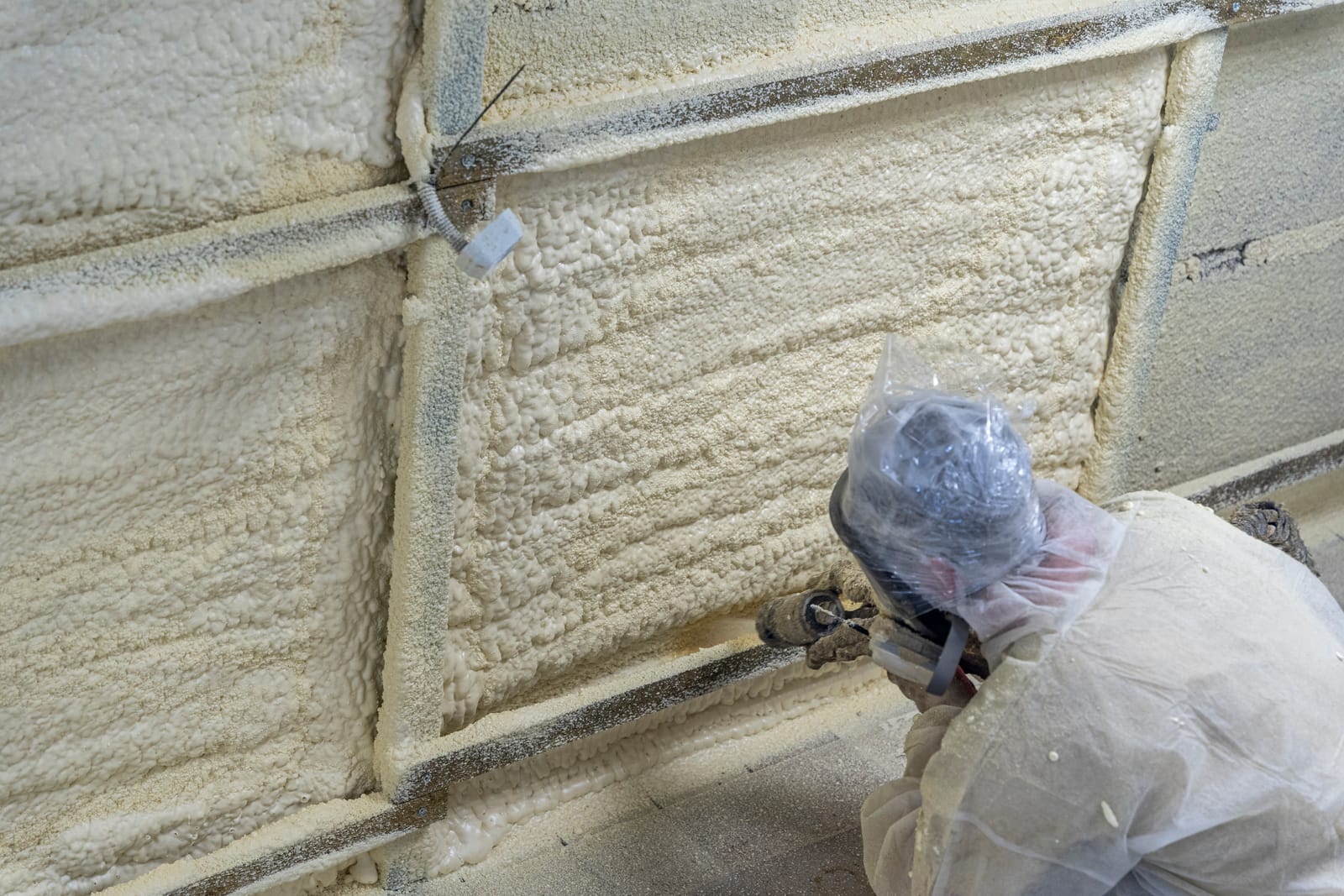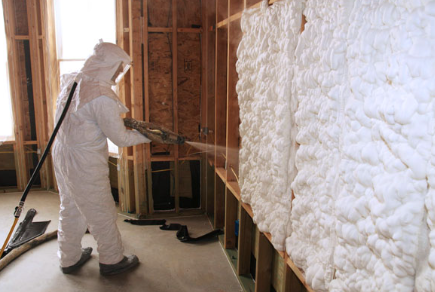spray foam INSULATION
Spray Foam Insulation
Todays strict building regulations demand that all new dwellings be as airtight as possible. We found out that spray foam insulation is the best way to achieve that.
Spray foam insulation is a high-performance insulation material that is applied as a liquid and expands into a rigid foam. It’s a popular choice for both new construction and retrofit projects due to its exceptional energy efficiency, durability, and versatility.

Benefits of Spray Foam Insulation:
- Superior Energy Efficiency:
- R-value: Spray foam offers excellent R-values, meaning it provides superior resistance to heat transfer. This translates to lower energy bills and a more comfortable living environment.
- Air Sealing: Spray foam creates a continuous air seal, preventing air infiltration and reducing energy loss through drafts.
- Durability and Longevity:
- Resistance to Moisture and Pests: Spray foam is resistant to moisture and pests, ensuring its long-term performance and preventing damage to your building.
- Structural Integrity: It can help improve the structural integrity of your building by providing additional support and reducing stress on framing.
- Versatility:
- Various Applications: Spray foam can be used in a variety of applications, including walls, ceilings, attics, crawl spaces, and foundations.
- Customization: It can be customized to meet specific insulation needs and building codes.
- Noise Reduction:
- Soundproofing: Spray foam can help reduce noise transmission, making your home quieter and more peaceful.
- Mold and Mildew Resistance:
- Healthy Indoor Environment: Spray foam’s dense, continuous nature helps prevent mold and mildew growth, promoting a healthier indoor environment.
Types of Spray Foam:
- Open-Cell Spray Foam: This type is less dense and more affordable but offers lower R-values. It’s often used for air sealing and insulation in non-load-bearing areas.
- Closed-Cell Spray Foam: This type is denser and offers higher R-values, making it ideal for areas where structural support and moisture resistance are critical.

In conclusion, spray foam insulation is a valuable investment for homeowners and building professionals seeking energy efficiency, durability, and a healthier indoor environment. Its versatility and exceptional performance make it a popular choice for a wide range of applications.
Contact us
Got questions? We’re here to talk about how our insulation solutions can benefit your business and projects. Let’s connect and see how we can help you achieve your goals.
